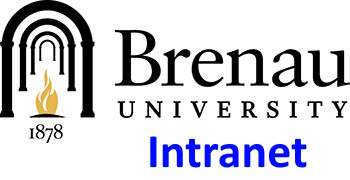Title IX
“No person in the United States shall, on the basis of sex, be excluded from participation in, be denied the benefits of, or be subjected to discrimination under any education program or activity receiving Federal financial assistance.”
— Title IX, Education Amendments of 1972
Title IX protects people from discrimination based on sex in education programs or activities that receive federal financial assistance.
View Full policy
The full policy is available for viewing and download in the PDF linked below.
How to Report
Emily Zank
Title IX Coordinator
ezank@brenau.edu
770-534-6191
Located at 431 Brenau Avenue Gainesville Historic Campus
Resources
- Call 988: Call, text or chat with 988 and be connected to trained crisis counselors in the 988 Suicide and Crisis Lifeline.
- Rape Response: 770-503-7273, advocate@raperesponse.com
- Georgia Crisis & Access Line: 1-800-715-4225 (24/7)
- Depression Hotline: 888-273-5174
- Self-Harm Hotline: 877-455-0628
- National Crisis Line: 800-273-8255
Please note that any time there is an emergency, while you are on campus, please contact Security at 770-534-6202.
Trainings
- 2020 – Webinar Title IX – Final Rules – Part I – Definitions Obligations (PDF)
- 2020 – Webinar – Title IX – Final Rules – Part II – PreHearing Investigations (PDF)
- 2020 – Webinar – Title IX – Final Rules – Part III – Informal and Formal Resolution (PDF)
- 2020 – Webinar – Title IX – Final Rules – Part IV – Appeals Retaliation and Record Keeping (PDF)
- 2020 – Webinar – Title IX – Final Rules – Part V – Review (PDF)
- 2020 – Webinar – Title IX – Role of Decision-Maker (PDF)
- 2020 – Webinar – Title IX – Trauma Informed Investigation and Questioning (PDF)
- 2020 – Webinar and In Person – Title IX Investigator Training – Part V – Investigation Videos (PDF)
- 2020 – Webinar and In Person – Title IX Investigator Training – Parts I II and III – Definitions Investigation Hearing Appeal (PDF)
- 2020 – Webinar and In Person -Title IX Investigator Training – Part IV – ANSI ASIS Investigation Standards (PDF)
- 2021 Title IX Hearing Panel Member Training – Posting for Institutional Website (PDF)
- 2021 Title IX Investigator Training – Posting for Institutional Website (PDF)
